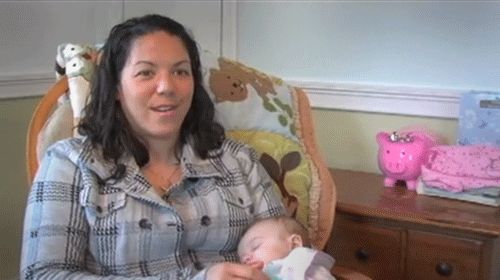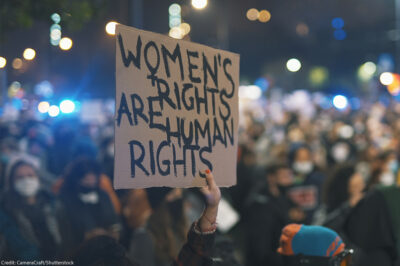Stopping Pregnancy Discrimination Once and For All: New York Leads the Way


Julie Desantis-Mayer had worked as a package driver at UPS for nearly ten years before she and her husband made the decision to start a family. Her job as a package driver is physically demanding, requiring her to deliver heavy packages to families in eastern Long Island for up to 14 hours per day. When she became pregnant, Julie requested a light-duty position for the duration of her pregnancy. She knew that UPS routinely grants this kind of temporary adjustment to workers with injuries and other temporary conditions – including problems with their drivers’ licenses – that prevent them from working as package drivers. Yet her employer refused, and instead forced her out onto unpaid leave for the rest of her pregnancy. Watch a video of Julie here:


%3Ciframe%20allowfullscreen%3D%22%22%20frameborder%3D%220%22%20height%3D%22281%22%20src%3D%22https%3A%2F%2Fwww.youtube.com%2Fembed%2FAOf7sBaiHOw%3Fautoplay%3D1%26version%3D3%22%20width%3D%22500%22%3E%3C%2Fiframe%3E
Privacy statement. This embed will serve content from youtube.com.
Julie filed a complaint of discrimination with the Equal Employment Opportunity Commission protesting this treatment, represented by the ACLU and the New York Civil Liberties Union. But the truth is, she shouldn’t have had to. The Pregnancy Discrimination Act was passed almost 35 years ago in order to make sure that workers like Julie are not pushed out of the workplace when they’re pregnant. But in the years since the law was enacted, employers have ignored it, and too many courts have allowed companies to treat pregnant workers worse than other workers – like workers with disabilities and injured workers – who are given minor accommodations that enable them to stay on the job. In the case of Peggy Young, another pregnant worker who was pushed out of the workplace by UPS, a federal court held that requiring UPS to give her the same kind of job modification that the company grants to injured workers would be giving pregnant workers unjustified “most favored nation” status. These decisions actually subject pregnant women to “least favored nation” treatment, forcing them to leave their jobs or take long unpaid leaves just at the time when they most need to earn a living.
Around the country, women are fighting back against this kind of discrimination by supporting federal and state laws to address the problem. Since most American women will be pregnant at some point during their careers, requiring companies to keep those workers on the job using the same policies and accommodations they already use to keep other temporarily injured or disabled workers at work is not only fair, it’s common sense. A federal bill, the Pregnant Workers’ Fairness Act, that would require companies to grant reasonable accommodations to pregnant workers, is gaining momentum in Congress.
On the state level, the ACLU and other women’s rights organizations launched the Equal Pay Today! campaign earlier this week. This campaign aims to close the persistent gender pay gap by reforming policies and practices at the state and federal level that contribute to it, including the push-out of pregnant workers.
In New York, a broad coalition of advocates including the New York Civil Liberties Union is working hard to pass the Women’s Equality Act, a 10-point legislative proposal that would advance women’s equality in the workplace and in society. The Women’s Equality Agenda would stop pregnancy push-out in New York by making it clear that employers must grant reasonable accommodations for pregnancy-related conditions. It also closes a host of other loopholes in state law extending protections against sexual harassment in the workplace, helping to achieve pay equity, enhancing the safety of domestic violence victims, and increasing protections against discrimination in employment, housing, credit and lending. Finally, the Women’s Equality Act will safeguard women’s health by bringing New York’s abortion law in line with current medical practice and with federal protections established in Roe v. Wade. This current episode of the NYCLU’s Project Liberty explores the Women’s Equality Act and gives unique insight into this groundbreaking legislative package.
We hope that other states follow New York’s lead in joining the Equal Pay Today! movement and in taking steps to end pregnancy discrimination once and for all.
Learn more about pregnancy discrimination and other civil liberties issues: Sign up for breaking news alerts, follow us on Twitter, and like us on Facebook.



